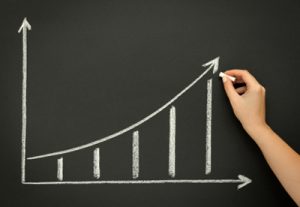QUOTE OF THE WEEK
“Once we start to make inroads into the coronavirus epidemic, then sentiment can come back quickly, and there is a lot of stimulus in place to support that.”
REA Group director of research Cameron Kusher
MARCH PRICE RISES DEFY VIRUS
 Australian house prices continued to rise in March, shrugging off the initial impacts of the virus crisis on real estate.
Australian house prices continued to rise in March, shrugging off the initial impacts of the virus crisis on real estate.
New price data published this week by two key research sources show that house prices rose in capital cities and in regional markets during the month, despite government restrictions on auctions and open inspections and the generally negative sentiment in the community.
CoreLogic figures showed every capital city and all regional jurisdictions except the Northern Territory recorded rises in house values during March. There was a similar result for house prices in the latest quarter.
Nationally, house prices increased 0.7% and apartments prices 0.6% in March, according to the CoreLogic data.
The SQM Research figures also show no evidence of any negative reaction to the coronavirus situation. Its figures show that there have been meaningful price rises during March for houses in Sydney, Melbourne, Perth, Canberra, Darwin and Hobart, with no change in Brisbane. Adelaide was the only city to record a small decline in March, according to SQM.
HOUSEHOLD WEALTH AT DECADE HIGH
 Australian household wealth reached a record high of $11 billion in the December 2019 Quarter, according to the ABS. The 3% gain delivered in the December Quarter was the strongest uplift on residential real estate since December 2009.
Australian household wealth reached a record high of $11 billion in the December 2019 Quarter, according to the ABS. The 3% gain delivered in the December Quarter was the strongest uplift on residential real estate since December 2009.
ABS Chief Economist Bruce Hockman says the results reflect the rebound in house prices in the second half of 2019 and a rise in other financial assets.
“Residential real estate posted another quarter of strong real holding gains, reflecting a 3.9% rise in residential property prices in the December quarter 2019,” he says. “The value of household financial assets including shares and holdings in superannuation funds had a modest increase of 1.5%, reflecting the smaller holding gains on financial assets.
“While holdings in superannuation funds are at a high of 55.7% of total household financial assets, the share of deposits remains at a 9-year low of 19.4%.”
Average household wealth increased by $12,809 to $442,705 per person – the highest on record; household wealth per person increased 8.6% through the year.
LOW RATES DRIVE HIGH INQUIRIES
 Online lenders are experiencing a sharp increase in enquiries as home owners look to refinance, availing of the lowest mortgage rates in Australian history.
Online lenders are experiencing a sharp increase in enquiries as home owners look to refinance, availing of the lowest mortgage rates in Australian history.
Mortgage broker Clint Howen of Hero Home Loans online says inquiries have increased to five times their usual traffic with first-home buyers and families driving the surge.
“We’re an online mortgage broker and lender, always 100% online, and now that you can’t physically see people, we’re seeing a lot more people come through,” says Howen.
“This happened after the GFC as well. The stock market crashed, people took money out and people had self-managed super funds. The same thing is kind of happening now. It’s early days but we’re getting that sense of people feel safer with property … It’s going to take a while to play out, I think six to 12 months.”
Howen says the lowest interest rate now is 2.09% from ING fixed, with the major banks also offering low rates – for example, Commonwealth Bank at 2.19% fixed.
LA TROBE TIPS SHARP REBOUND

Australia’s housing market, employment conditions and economy are likely to rebound strongly following the COVID-19 outbreak, says chief investment officer of La Trobe Financial Chris Andrews.
Andrews highlights his confidence in the ability of the Australian economy to bounce back once the immediate threat of the virus has passed, referring to the immense resilience previously seen in the Australian housing market.
Andrews notes periods in the past when the housing market has initially responded negatively to broader economic conditions, including the global financial crisis in 2008 and the 2017–2019 “credit squeeze”, but recovered strongly soon after.
“In both cases, there was an initial drop … but in both cases, that was followed by a sharp rebound, as more normal market conditions re-emerged,” he says.
“So, that is a really good baseline for our thinking around house prices.”
He adds that house prices are less volatile than the share market, and that our financial system is strong.
BUYERS TURN TO DIGITAL AUCTIONS
Home buyers have turned to digital auctions following the government ban on public auctions. Auctioneers are rapidly adopting purpose-built streaming and bidding platforms.
Domain senior research analyst Nicola Powell says there are many positives aspects relating to online auctions – more research can be done from the comfort of home.
“I think the market would have eventually adopted online auctions in the next five to 10 years because everything is being done online nowadays,” Powell says.
“Especially south-east Queensland, which has a lot of interstate buyers …”
Auctioneer John Bongiorno says: “It’s amazing the way that everybody’s adopted and adjusted to online auctions. Things are actually quite busy at the moment because people are rushing to do deals – vendors and buyers are rushing.”
REA Group’s chief economist Nerida Conisbee says sentiment to buy houses remains high and also points out that there is no shortage of money with interest rates now sitting at 0.25% and banks “ready to lend”.




